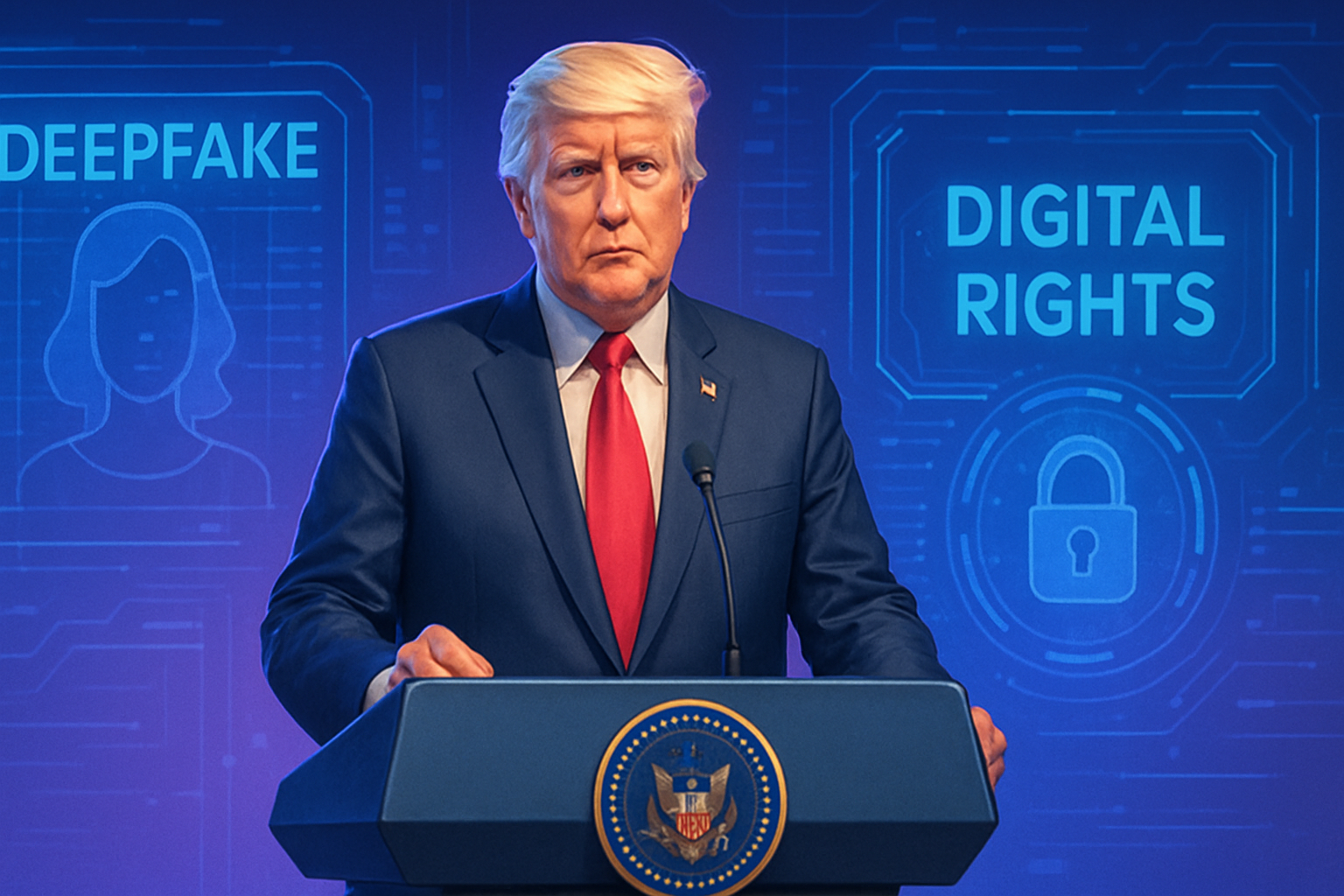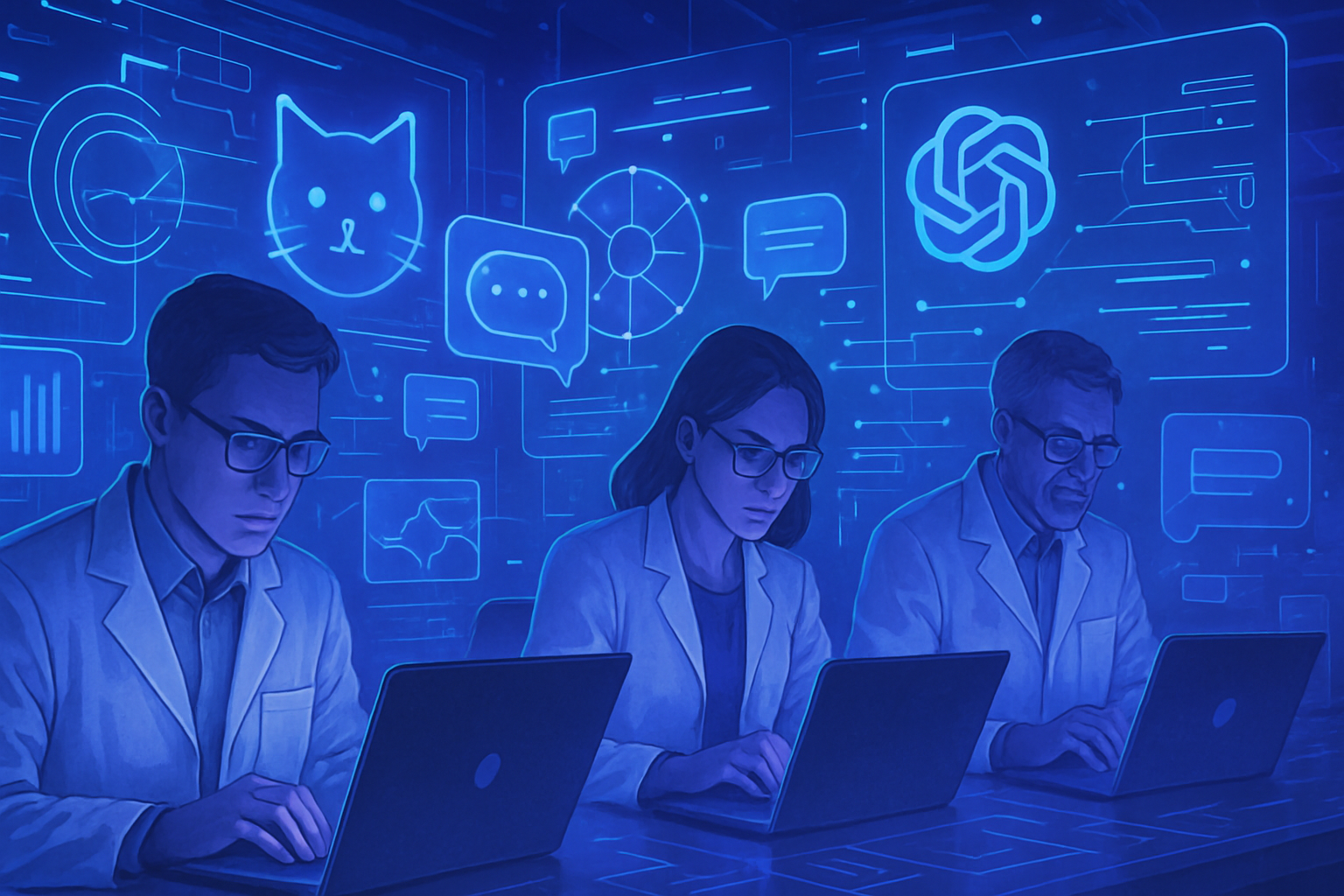Federal legislation emerges to combat sexual deepfakes. President Donald Trump, accompanied by Melania Trump, has enacted bold legislation against the non-consensual distribution of sexual images, marking a significant milestone in the fight against *revenge porn*. This initiative aims to protect victims and strengthen the accountability of digital platforms. As the phenomenon of deepfakes proliferates, the legislation is particularly concerned with young people and women, who are often targeted by these vile acts. The societal context demands a firm response to these violations of image and reputation.
Enactment of the Take It Down Act
On May 19, 2025, American President Donald Trump signed the law titled Take It Down Act in the White House rose garden. This text aims to criminalize the non-consensual distribution of images with sexual content, whether real or generated by artificial intelligence, commonly referred to as “revenge porn”.
Objectives of the Legislation
This legislation addresses a growing phenomenon in the United States. The distribution of explicit images without consent particularly affects young girls and women, creating situations of harassment and humiliation. The law stipulates that anyone who intentionally distributes such images could face up to three years in prison.
Bipartisan Support and Mobilizations
The Take It Down Act has received significant support from both political parties in the U.S. Congress. Melania Trump, the First Lady, played a key role in advocating for this bill, thereby highlighting increased governmental attention to the rights of victims of this type of content. Her commitment has been reinforced by inviting young victims to the White House, illustrating the devastating consequences of these acts.
The Dangers of Deepfakes
With the advent of artificial intelligence tools, the creation of hyper-realistic photo and video montages – deepfakes – has taken on alarming proportions. These techniques are often misused for malicious purposes, underscoring the urgent need for adaptive legislation. Legislators are struggling to keep pace with this phenomenon, the consequences of which are already visible within society.
The Voice of the Victims
The testimony of a Texas teenager who was a victim of the distribution of images created without her consent showed the depth of the emotional impact. Her mother, Anna Berry McAdams, expressed the anxiety and shame felt by the young girls affected. Her statement: “This could affect them for their whole lives,” underscores the importance of acting quickly to protect those who suffer such violations.
Consequences of Non-Compliance
The law also imposes penalties on social networks hosting these contents. If these images are not removed within forty-eight hours, platforms could face civil liabilities, leading to significant legal consequences. The providers of these services must therefore ensure compliance with this obligation, thereby enhancing their role in protecting users.
Risks of Censorship and Legislative Challenges
Concerns have emerged around the potential risk of censorship due to vague terms contained in the legislation. Public advocacy groups, such as the Electronic Frontier Foundation, have expressed their concerns. They have emphasized that the protection of victims should not result in erosion of digital rights or limitation of legitimate expression on the Internet.
The Necessary Evolution of Laws
Previously, only a few states, such as California and Florida, had similar laws. The enactment of this federal legislation represents a significant step forward in the fight against the phenomenon of deepfakes. Renée Cummings, criminologist and artificial intelligence expert, has stressed the importance of rapid and effective implementation, highlighting that the legislative response must evolve alongside emerging digital threats.
Future Perspectives
As the fight against deepfakes and revenge porn intensifies, vigilance remains necessary. Society must ensure that the established legislative provisions do not compromise individuals’ digital rights. The balance between protection and freedom of expression must be maintained to avoid drifting into inappropriate censorship.
To delve deeper into the topic of deepfakes and legislation, additional articles detail the current challenges. You can visit the site for more information on the future of artificial intelligence or these cases of celebrity victims of deepfakes. Additionally, several initiatives are taking place in the UK to counter digital attacks, which you can discover through this article on new initiatives in the UK.
Frequently Asked Questions
What is the Take It Down act enacted by Donald Trump?
The Take It Down act is a federal law signed by Donald Trump on May 19, 2025, aimed at criminalizing the non-consensual distribution of sexual images, whether real or generated by artificial intelligence.
Who is affected by this legislation on revenge porn and deepfakes?
This legislation affects everyone, but it particularly impacts young girls and women, who are often victims of this type of non-consensual sharing.
What are the penalties for distributing explicit images without consent?
Individuals who intentionally share explicit images without the consent of the person involved could face up to three years in prison, in addition to civil liabilities for platforms that do not promptly remove these contents.
How does the Take It Down act protect victims of deepfakes?
This law aims to protect victims by making the distribution of falsified sexual images without consent illegal, which represents a significant advancement in the fight against digital harassment.
What recourse do victims have if their images are distributed without their consent?
Victims can report the acts to the authorities for an investigation to be conducted, but the effective implementation of this legislation will also depend on the responsibility of social networks.
What are the responsibilities of social media platforms regarding this law?
Platforms must quickly remove non-consensual images, or they risk facing civil penalties if they do not comply within a forty-eight-hour timeframe.
What challenges may arise in enforcing the Take It Down act?
Challenges include the rapid and reliable implementation of the law, as well as the need to ensure that it does not lead to excessive censorship of expression on the Internet.
What is the importance of Melania Trump’s support for the Take It Down act?
Melania Trump’s support shines a light on the issue of online harassment and helps raise public awareness about the risks associated with the distribution of sexual images without consent.
How is this legislation different from existing laws in some states?
While some states already had laws against revenge porn, the Take It Down act introduces more uniform and significant federal legislation to address this issue at a national scale.






